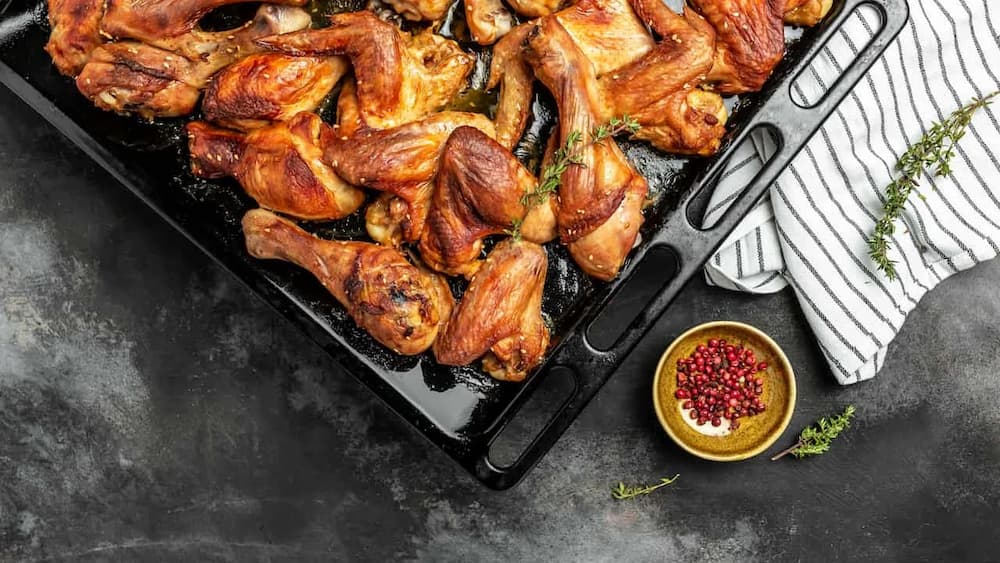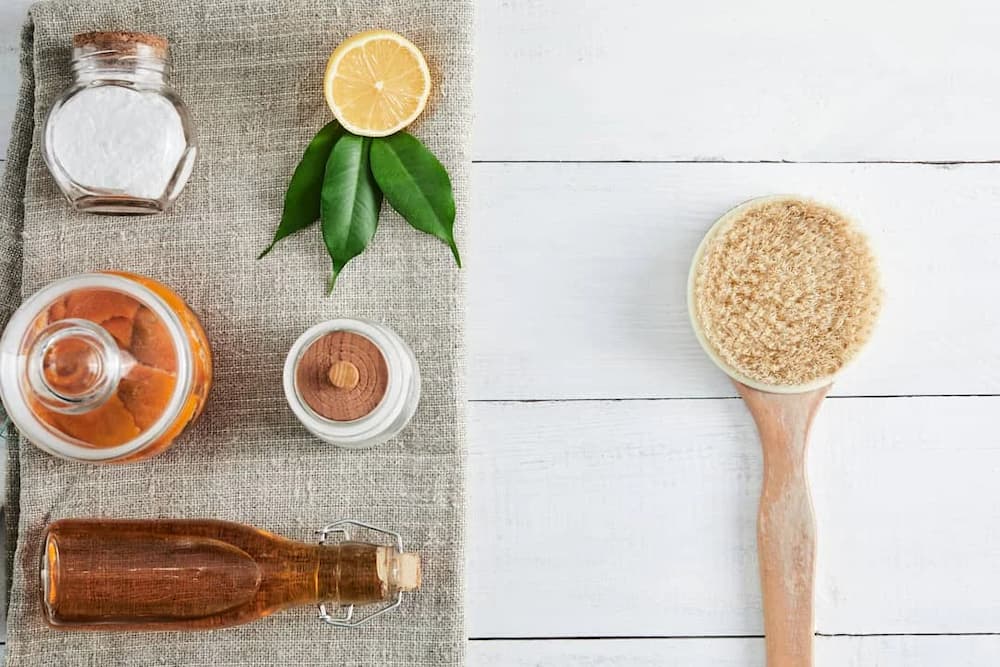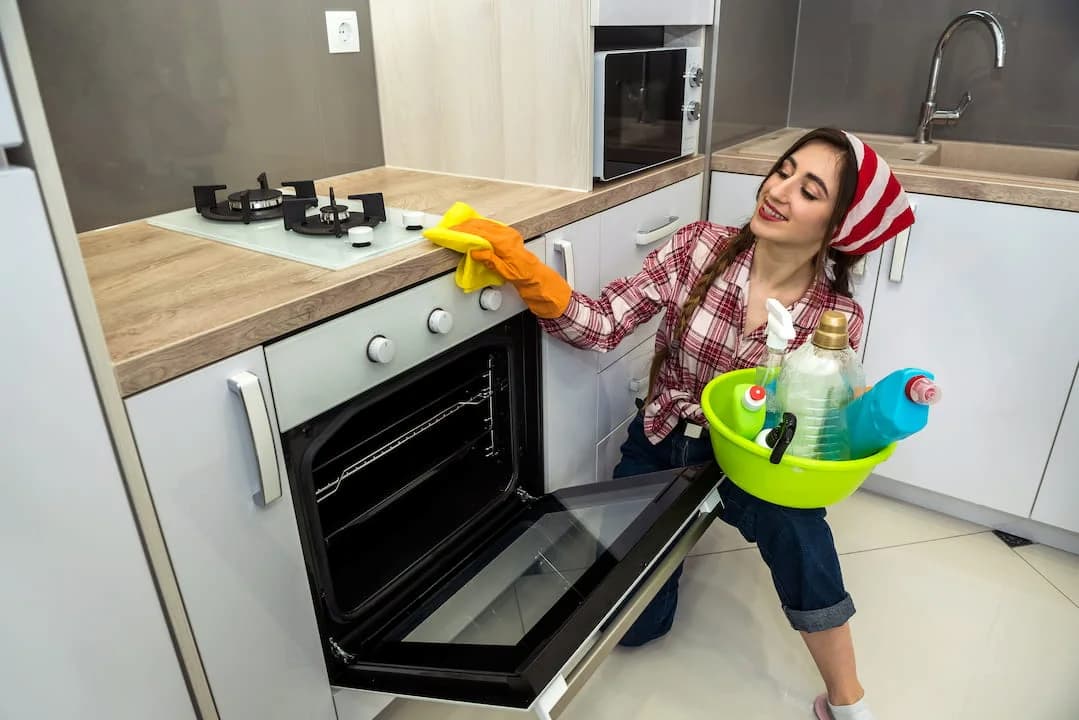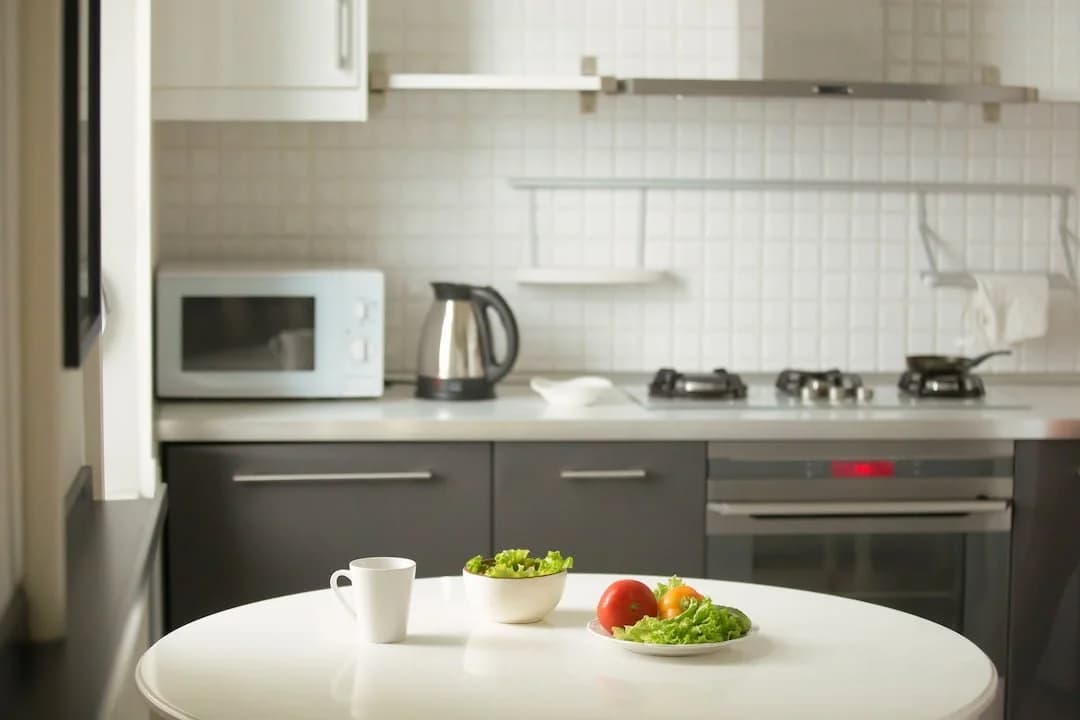Our ovens go through a lot while we are cooking. There are food and oil spills, grease coming off baking trays, and high temperatures to increase the toughness of all these stains. Thus, they require strong cleaners which are generally toxic chemicals to clean our ovens.
These cleaners do their job so well that if they are used for cleaning any other material or surface in our kitchens the results won’t be ideal. There can be harm done to your vanities in terms of discolorations, damages, and abrasion. Here is where kitchen countertops come into play, as a lot of people ask what is the effect of oven cleaner products on them. The short answer to this question is, that you shouldn’t use oven cleaners on your kitchen countertops as cleaners.
Harmful Chemical Cleaners to Avoid Using on Your Kitchen Countertops
Here is a shortlist of harmful chemical oven cleaners to avoid using for your kitchen vanities and countertops:
- Caustic soda,
- Ether based cleaners,
- Ethylene glycol,
- Methylene chloride,
- Sodium hydroxide,
- Butane,
- Diethylene glycol,
- Foaming agents,
- Crystallization agents,
- Degreasers,

Why Oven Cleaners Should Not Be Used on Your Kitchen Countertops
So you might be wondering why you shouldn’t use oven cleaners for your kitchen countertops.
The effects depend on the material of your kitchen countertops. Oven cleaners are generally made from strong chemicals as stated above, thus, they could degrade or perhaps not harm harm at all to your kitchen countertops depending on what they are made from.
Natural Stone Countertops
Natural stone countertops are one of the most vulnerable countertop types against strong chemical oven cleaners. The main reason is that they are more porous in comparison to other countertops. This means that when strong chemicals infiltrate the surface, they can cause damages to your natural stone countertops.
The only upside is that, since they are natural and not artificially colored, discoloration won’t be a major issue as it is with other kitchen countertop types. However, we still recommend that you use other cleaning alternatives for your natural stone countertops.
If you are also looking for acquiring natural stone countertops, we highly suggest that you check our granite and marble countertops. Their natural veining pattern along their exquisite craftsmanship will bring aesthetic value to your home kitchen.

Cleaning Alternatives for Your Natural Stone Countertops
We suggest that you use common household cleaning products such as mild soap, warm water, white vinegar (mixed with water), and baking soda.
You can simply use clean wool or microfiber cloth to clean the surface of your natural stone countertops, and voila! They will look as good as new. We also highly suggest that you reseal your stone countertops on a regular yearly basis to preserve their beauty and shine.
Quartz Countertops
Quartz countertops are at an even higher risk than natural stone countertops. They are less porous in comparison to their stone counterparts, however, they are prone to discoloration effects.
This is due to them being engineered, in other words, “manmade”. Thus, they have additional artificial pigment colors in their material mixture. These color pigments can degrade with the usage of strong chemical oven cleaners.

Cleaning Alternatives for Your Quartz Countertops
For quartz countertops, you can use the same cleaners as natural stone countertops. A clean cloth, wool or microfiber, mild soap (or dish soap), warm water, white vinegar mixed with water, baking soda, and similar products will do the trick.
Make sure to wipe the surface of your quartz countertops twice during cleaning. Once for cleaning, and a second time to dry the surface. You can also periodically seal your quartz countertops to maintain them.
Wooden Countertops
Wooden countertops are the ones most at risk when cleaned with oven cleaners. While natural stone and quartz countertops can survive the abrasive effects of oven cleaners to some degree, wooden countertops will definitely be damaged.
We never suggest that you use oven cleaners on wooden surfaces and countertops under any circumstances. This is especially important if you have laminate or veneer style wooden surfaces. If oven cleaner-type chemicals cleaners are used on them, they will have a strange paste-like substance forming on the surfaces of your wooden countertops and this will spoil them entirely.

Cleaning Alternatives for Your Wooden Countertops
To clean your wooden countertops, we suggest that you use mild soap and warm water only. You can mix them in a spray bottle and wipe them with clean wool or a microfiber cloth after cleaning.
Make sure to dry the surfaces with an extra clean cloth after cleansing to avoid excess moisture from forming on top of them. Never dip your wooden cutting countertops or blocks in water as this can penetrate the wood and cause molding and rotting.
To seal your wooden countertops you can use special orange-colored wood oil to preserve the material and enhance its appearance in terms of shine. We recommend that you do this on a monthly basis.

What to Do If You Used Oven Cleaners on Your Countertops?
If for some reason you used oven cleaners on any of your kitchen vanities or surfaces fret not! You can still prevent the damage entirely or to some extent.
First of all, make sure to soak a clean cloth with warm water and mild soap. Clean the affected area and then dry it with another clean cloth. You can do this multiple times until you are sure that the surface is purified from the chemicals.
Next, make sure to polish or oil your kitchen countertops depending on the material of your countertops. While this might not always work, there is a high chance that it will help preserve their current state. You can additionally try to polish them after this process is done to enhance their beauty.

This is the end of our blog post for “What is the Effect of Oven Cleaner on Kitchen Countertops?”! If you are interested in following out popular trends for kitchen designs and new kitchen products in 2021 make sure to check out our other blog posts such as “Trending Kitchen Styles for Summer 2022”, “Color Theme Ideas For Your Dream Kitchen”, and “Pros and Cons of Quartzite Countertops”.
We’re sure you’ll find more ideas for different kitchen styles and select out the most suitable products for your kitchen with these posts as well. Until next time, be safe and in good vibes!


